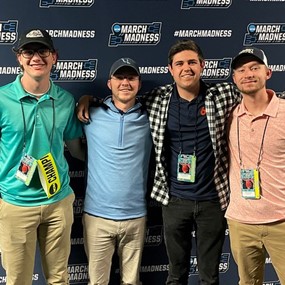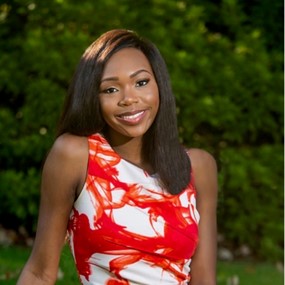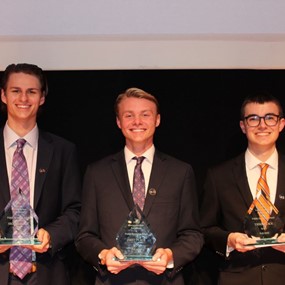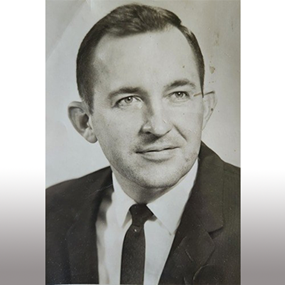Auburn communication professor explores impact of sports through rhetorical theory
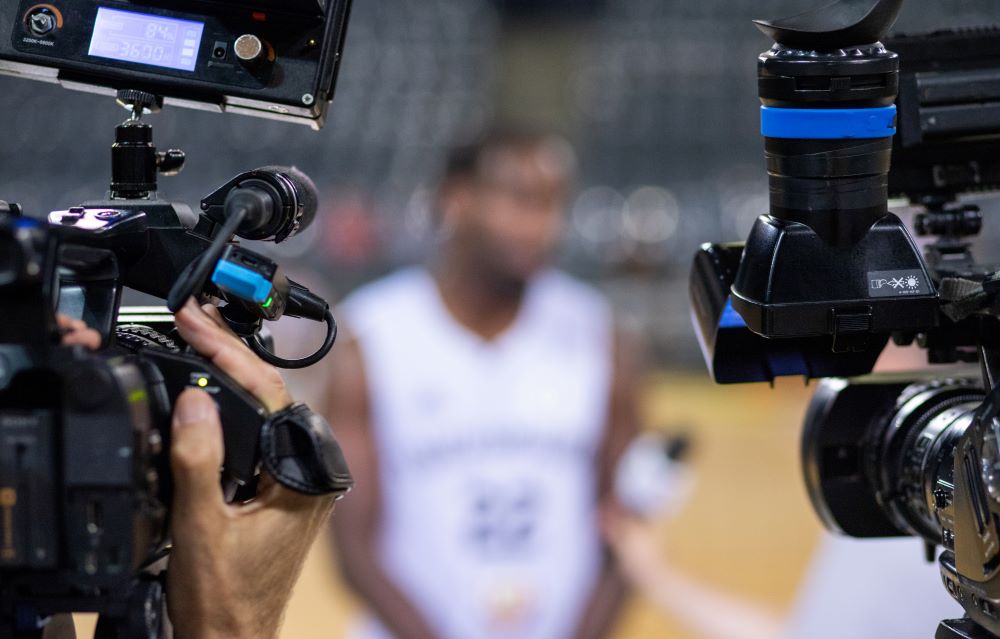
The NCAA March Madness basketball tournament goes beyond showcasing the top 64 collegiate teams, drawing basketball's prominent figures, highlighting the sport's elite, fostering new talents and enabling unexpected triumphs. With the Auburn Tigers men's team's anticipated performance, Professor of Communication Mike Milford delves into the intersection of sports and social issues like identity, community and politics through his course, Rhetoric of Sports.
Auburn's basketball program has become integral to campus culture, evidenced by traditions like "The Jungle," "Auburn-North" in Nashville and the formation of "Pearlville" through pregame camping. This extends to the Auburn Family and the wider community. Milford suggests that the team's recent success may reinforce cherished values among fans.
"Sports aren't just things we watch to be entertained, they're things we watch and participate in to sort of confirm these value systems and belief systems that we have. When they go well, we get very excited and use that success to justify our beliefs and actions," said Milford. "So, from Little League, all the way to March Madness and everything in between, sports are one of the key tools communities have for explaining itself and its value system."
The March Madness tournament has a variety of themes, with so many storylines, Cinderella moments and other emotions on display. Milford compares these narratives to ingredients in a dish, all coming together to make the product that fans know and enjoy.
"You can't take a dish's ingredients apart and it still be good. So, if you take spaghetti and you take the meat, tomatoes and noodles out and separate it into all its ingredients, it's just not the same. But when you mix it all together, the interaction of those ingredients is really something special," said Milford. "So, what do we have in March Madness? We have great storylines. We love David and Goliath stories. We enjoy stories of hard work, so we celebrate players diving for the ball. Again, we use these to sort of point to and say, 'These are the things we love and think are important.'"
Milford's Rhetoric of Sports course delves into various themes, ranging from mainstream to niche sports such as competitive eating and Australian netball. It aims to analyze sports' influence on community dynamics, offer insights into identity within sports and demonstrate how class themes resonate across different disciplines.
"One of the things that makes sports special is that we feel like we're a part of what's going on. That's what makes college sports really unique. There's a feeling of connection that we don't have as strongly with maybe professional sports," said Milford. "Principles we talk about in class are transferable to any type of community or sector, we just use sports as our lab. It can be political communities, religious communities or territorial issues. The rhetorical principles we cover are part of the foundation for how communities operate."
Milford encourages participation and critical thinking in all aspects of sports. One of the most important lessons from Milford's class is reflection, citing that fans can shape what is represented.
"We decide what we represent and how we represent ourselves, so pay attention. Pay attention to the things our student-athletes, our coaches and our athletic department do. Celebrate things you want to see and don't be afraid to question things you don't," said Milford. "If you associate yourself with the community, that reflects back on you as well. You want to make sure that is representing itself in a way that you want to be represented. If it's not, say something. Change the culture. It's not impossible."
Learn more about communication in the College of Liberal Arts.

